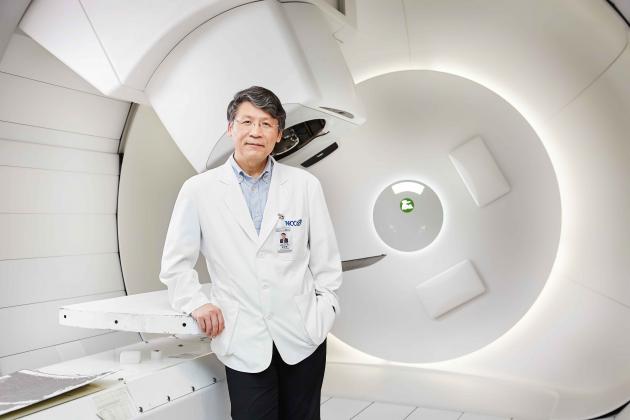The National Cancer Center has published clinical research findings, which proved proton treatment is effective on some patients with liver cancer who experience difficulty in receiving surgical treatment or have failed other treatments.

The team, led by Professor Kim Tae-hyun, the head of the Proton Therapy Center at the hospital, conducted phase 2 clinical trial for proton therapy in 45 patients with hepatocellular carcinoma who had difficulty receiving surgery treatment or have failed other therapies.
It confirmed the treatment's safety and efficacy by finding that the treatment had a three-year local control rate of 95.2 percent and a three-year survival rate of 86.4 percent. It also confirmed that the method had no severe adverse reactions.
The National Cancer Center introduced Korea's first proton therapy device in 2007 and has now garnered more than 10 years of clinical experience.
"Proton therapy has the advantage of minimizing the side effects of treatment while increasing the therapeutic effect compared to conventional X-ray and gamma-ray radiation therapy," Professor Kim said.
He also stressed the importance of the role and experience of the medical staff in using proton therapy.
"It seems that many people misunderstand that the proton treatment is just a medical device," Kim said. "The truth is, proton therapy is performed through a radiation oncology doctor's clinical experience with the help of medical physicists, radiologists, and nurses using a treatment device."
The NCC will do its best to study the treatment of diseases that are difficult to treat in private hospitals so that patients can receive the best treatment, Kim added.
The results of the research were published in the April edition of the journal Frontiers in Oncology.

